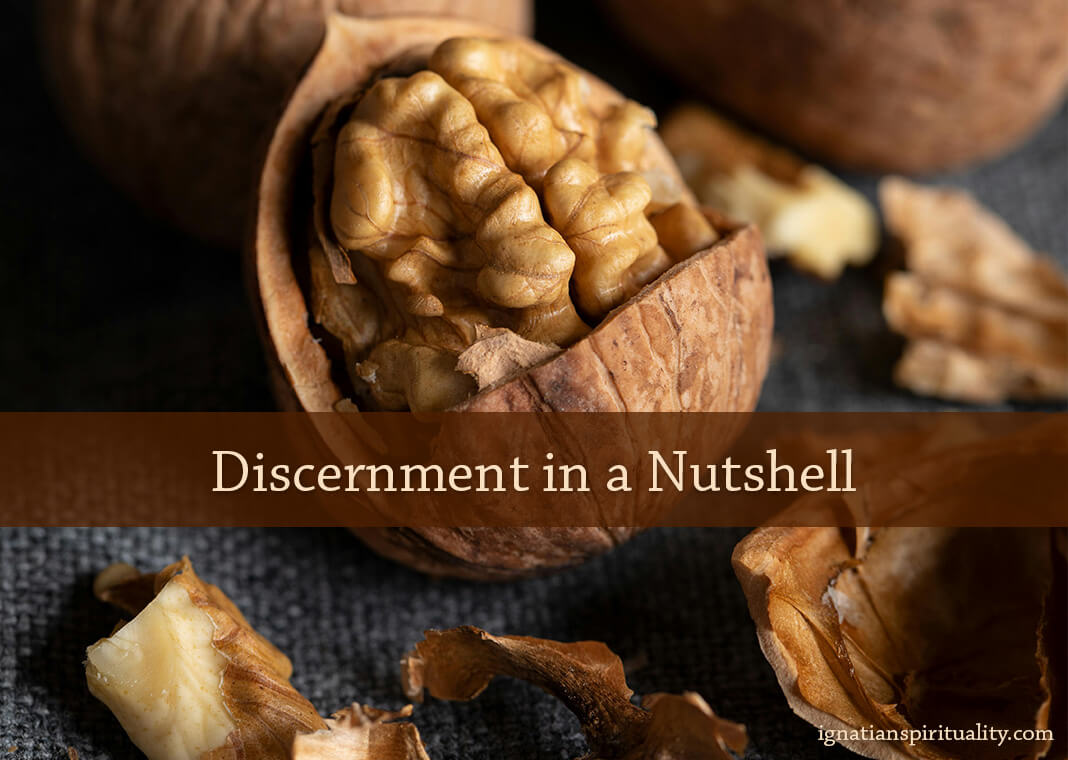 By Joseph A. Tetlow, SJ
By Joseph A. Tetlow, SJ
From Making Choices in Christ
Human beings are moved by a dense complex of motives, both in the things we do from day to day and in our big decisions. What drives a young woman to become a doctor or a young man to be an engineer? Many things contribute: success, altruism, interest. Or what drives a woman who has smoked for years to quit or an obese man to get thin? Again, many things contribute: fear of death, desire for health, concern of family. But they all interact in a kind of movement that eventually drives the person to act. Master Ignatius learned to think about those dense complexes of motives—images, ideas, attractions, revulsions—as “spirits.”
We can all name many spirits. There is school spirit, in which everyone cheers together for the football team. There is fear, which can depress an entire city, and exultation, which can cause a whole nation to rise up. But spirits are not only secular. A thrill of devotion fills St. Peter’s Square when a saint is canonized. A spirit of prayer drives people to make retreats. Christians under atheistic despotisms are moved to remain faithful.
Consolation and Desolation
Master Ignatius noted that these dense complexes of motives and energies take on two configurations, which he identified with consolation and desolation. He discovered that both consolation and desolation can move you toward God or pull you away from God. Then he noted that sometimes consolation comes from a good spirit and sometimes from a bad spirit, and he noted the same thing about desolation.
Ignatian spirituality applies this to interpreting major decisions and daily experience as well. The movement of spirits, obviously, involves a set of complex variables: consolation and desolation, good and evil spirits, movements to and away from God. . .
How Spirits Work
Some basic patterns are easy to grasp. For instance, as you would anticipate, the good spirit usually brings love, joy, peace, and the like; the evil spirit characteristically brings confusion, doubt, disgust, and the like. Another pattern: when you are leading a seriously sinful life, a good spirit will visit you with desolation to turn you around; an evil spirit will keep you content so that you will keep sinning. Another clear pattern is the opposite of this: when you are seriously serving God, the spirits change roles. The evil spirit clouds your day with desolation to lead you away from God, while the good spirit fills your day with trust and love of God. And a final, easily grasped pattern: a spirit that works in light and openness is good, while a spirit cloaked in secrecy and deception is evil.
What to Do about Feelings
Some basic practices are also easy to figure out. When you have made a good decision to serve God better and after awhile go into desolation, you should not change the decision; it’s hardly a good spirit moving you. When you are feeling down, you would do well to pray a little more and increase the help you give to others. When, without warning or any preparatory activity, you are consoled with the love of God above all things, you can trust that it is a good spirit (particularly if it comes with tears). But when you are thinking or praying and grow consoled or disconsolate—well, test those movements. They could come from either spirit, as we have seen.
There is a good deal more to Ignatian discernment, and it gets no simpler. It is not, however, a merely human discipline. “Now instead of the spirit of the world, we have received the Spirit that comes from God, to teach us to understand the gifts that he has given us” (1 Corinthians 2:12). Serious disciples cherish this gift and put it to good use.
Excerpt from Making Choices in Christ by Joseph A. Tetlow, SJ.
Photo by Saeed Basseri on Pexels.
Related Links
How Do I Know I’m Experiencing God? by William A. Barry, SJ
The Devil Comes Cloaked as an Angel of Light by William A. Barry, SJ
The Ignatian Way #6: What Is Discernment?
